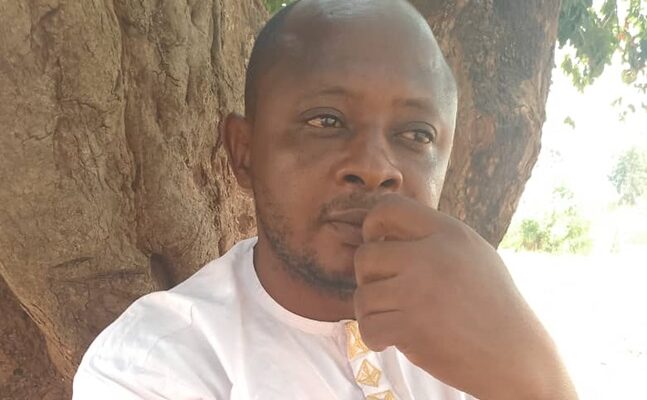By the roadside, under the unrelenting gaze of the Nigerian sun, an Igala son wipes sweat from his forehead as he hands change to a customer at a filling station. His degree certificate—an emblem of sleepless nights, relentless struggles, and a mother’s whispered prayers—rests somewhere in a drawer, gathering dust. Across the street, a young woman, also Igala, adjusts her ill-fitting security uniform, standing watch over buildings she will never own. The land laughs at some of them. Society mocks them calling them “Akpai- A nick-name for Igala by other tribes) This is a painful irony, a cruelty embedded deep within the fabric of Nigeria’s cities. An Igala graduate is reduced to wearing a cleaner’s uniform, while an ND holder from elsewhere is placed in a comfortable office, surrounded by air-conditioning. Where is justice when merit bows to tribal affiliation? Where is equity when hard work is buried under the weight of origin-based politics and job rackeering?
In Abuja’s estates, the gatekeepers and drivers bear Igala names. In Lagos, at petrol stations, where fuel attendants call out “Oga, your change!” their accents betray their roots. The cycle of ridicule is endless, the insult perpetual. “You people like this kind of work too much,” they sneer, laughing over the backs of those who bear the burden of a nation’s disregard. Yet, the cruellest joke is this: they have no helpers. In societies where fairness prevails, scholarships pour in—from government, private sectors, and organizations that believe in nurturing human capital. But not here. The Igala child must fend for himself, alone in a storm of neglect. If you cannot help them, at least, do not mock them. They call the Igala man an “Okada expert,” quick to belittle his skill. But have they forgotten? Where else but the army, the police, or paramilitary forces does such skill find its highest expression? If he is fearless on the road, should he not be entrusted with a rifle and a badge instead of being discarded to the streets? If he rides with precision, does that not suggest he could serve the state, defend its borders, and protect its citizens? Why is his skill turned into a weapon against him, instead of one for the nation’s benefit?
And what of our Social Media Kings in the diaspora, our Igala brothers in foreign lands, adorned in designer suits, sipping fine wine? They have the luxury of distance, the privilege of forgetting. But what good is their influence if their own people remain the subject of mockery back home? A king who fails to protect his own people is but a figurehead, a feather in the wind. He is like the king’s finest palm wine tapper, his scrotum nibbled by ants—his trousers torn in the most perfect place, a tear so perfectly positioned that even nature could not resist taking its bite. This is the tragedy of a nation that laughs at its own—a land that buries the potential of its people under layers of ridicule and scorn. The land mocks them today. But history is a patient judge. One day, the laughter will cease. And when the Igala people rise—not as casual labourers, not as security guards, not as fuel attendants—but as captains of industry, commanders of forces, and architects of governance, the world will ask, “Where have these people been?” And history will answer: “They were here all along. You just choose to mock them instead of seeing their worth.”
But the struggle is far from over. As more and more Nigerians approach retirement, the country is facing an undeniable challenge—a wave of seasoned workers exiting the workforce without a clear replacement. Yet, in Igala land, there seems to be no news of vacant positions or opportunities for the next generation to step in. Public organizations that should be teeming with staff—offices that should be brimming with fresh talent—still languish in a state of underemployment. How can new hires be brought on when jobs are bought and sold like commodities, with prices so high that they are beyond the reach of the very people who need them most? The real tragedy here is not the lack of opportunities, but the fact that the system has become so distorted, so entrenched in a culture of favouritism and corruption, that jobs are no longer awarded based on merit, but based on how much you can pay to get in. The Igala people, like many others from marginalized backgrounds, are left on the sidelines—their degrees, their skills, their ambitions ignored while the few with wealth and influence monopolize opportunities.
If the government truly wishes to serve its people, then the time has come to dismantle this culture of nepotism and corruption. There must be an open, transparent system that ensures every Nigerian—regardless of their tribal background or financial standing—has a chance to build a meaningful career and contribute to the nation’s progress. Let jobs be earned based on skill, not bought with wealth. Only then can we begin to heal the wound of injustice that has festered for so long. The government must implement policies that support underrepresented groups, especially ethnic minorities like the Igala, by providing equal access to scholarships, employment, and career development programs. This would break down the systemic barriers they face and allow their talents to flourish. There is an urgent need for national campaigns aimed at educating the broader population on the dangers of tribalism and the importance of merit-based recognition. Respecting every individual, regardless of their origin, should become the foundation of national pride.
Private and public institutions must adopt inclusive hiring policies that recognize merit over ethnic background. In doing so, they can foster a more diverse and balanced workforce that reflects the true richness of Nigeria’s ethnic mosaic. The Igala people in the diaspora must not forget their roots. They can leverage their success to invest in local development programs, sponsor scholarships, and mentor young Igala talents. This shared responsibility could help break the cycle of ridicule that continues to haunt their people at home. The government should explore the idea of formalizing skills like “Okada” riding and other informal trades by providing training programs and integrating them into the national workforce in sectors like law enforcement, security, and transportation, where such skills can be properly valued and utilized. It is time for the government to implement transparent recruitment policies. If we are to see any real change, there must be fair access to job opportunities for all, especially in the face of looming retirements. Let job vacancies be filled based on merit, not purchase.
– Inah Boniface Ocholi writes from Ayah – Igalamela/Odolu LGA, Kogi state.
08152094428 (SMS Only)




